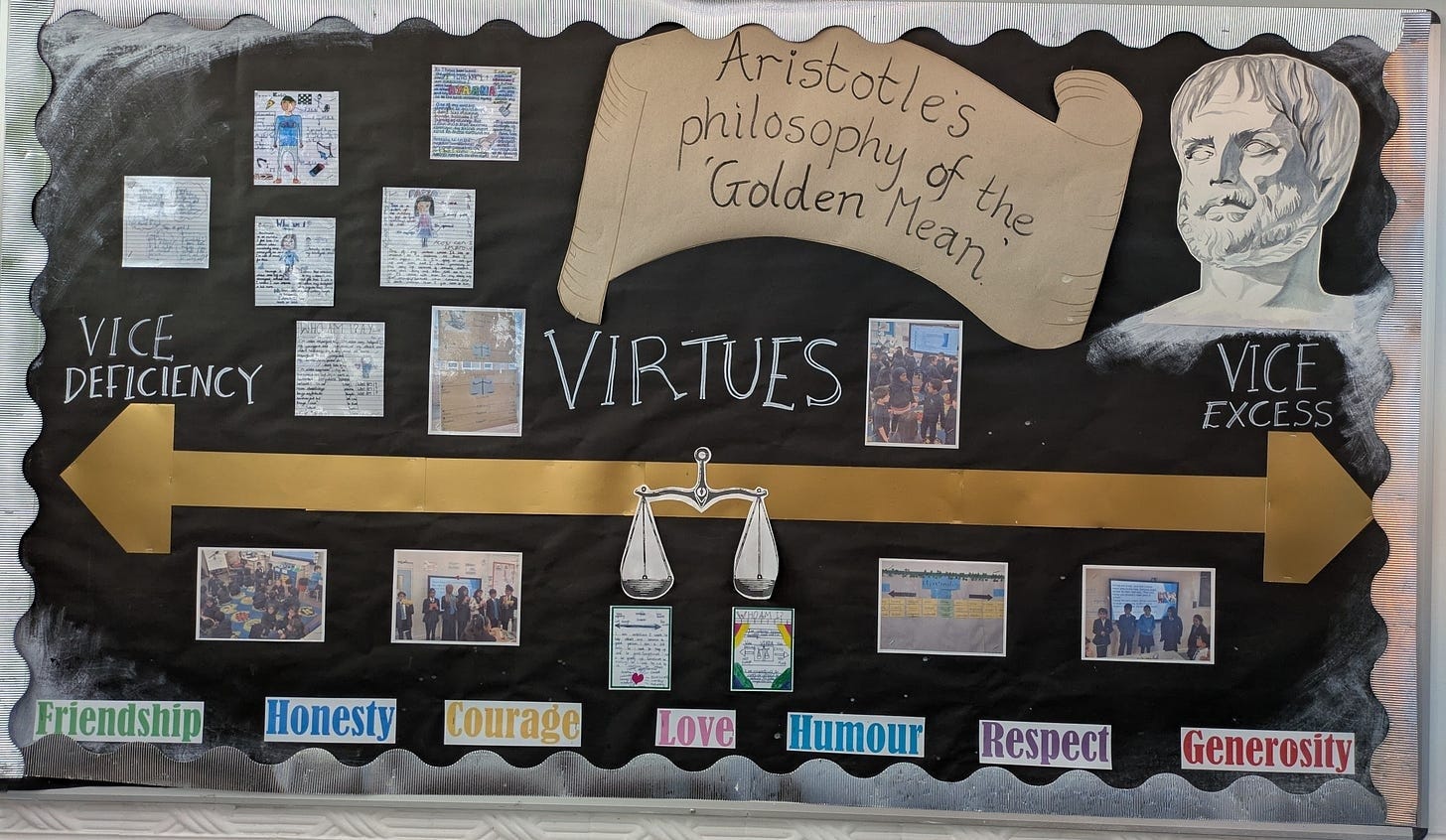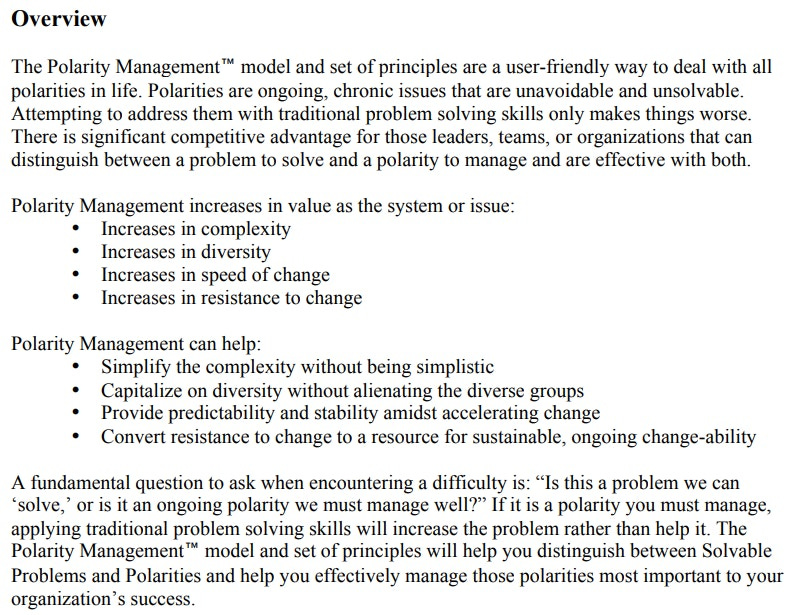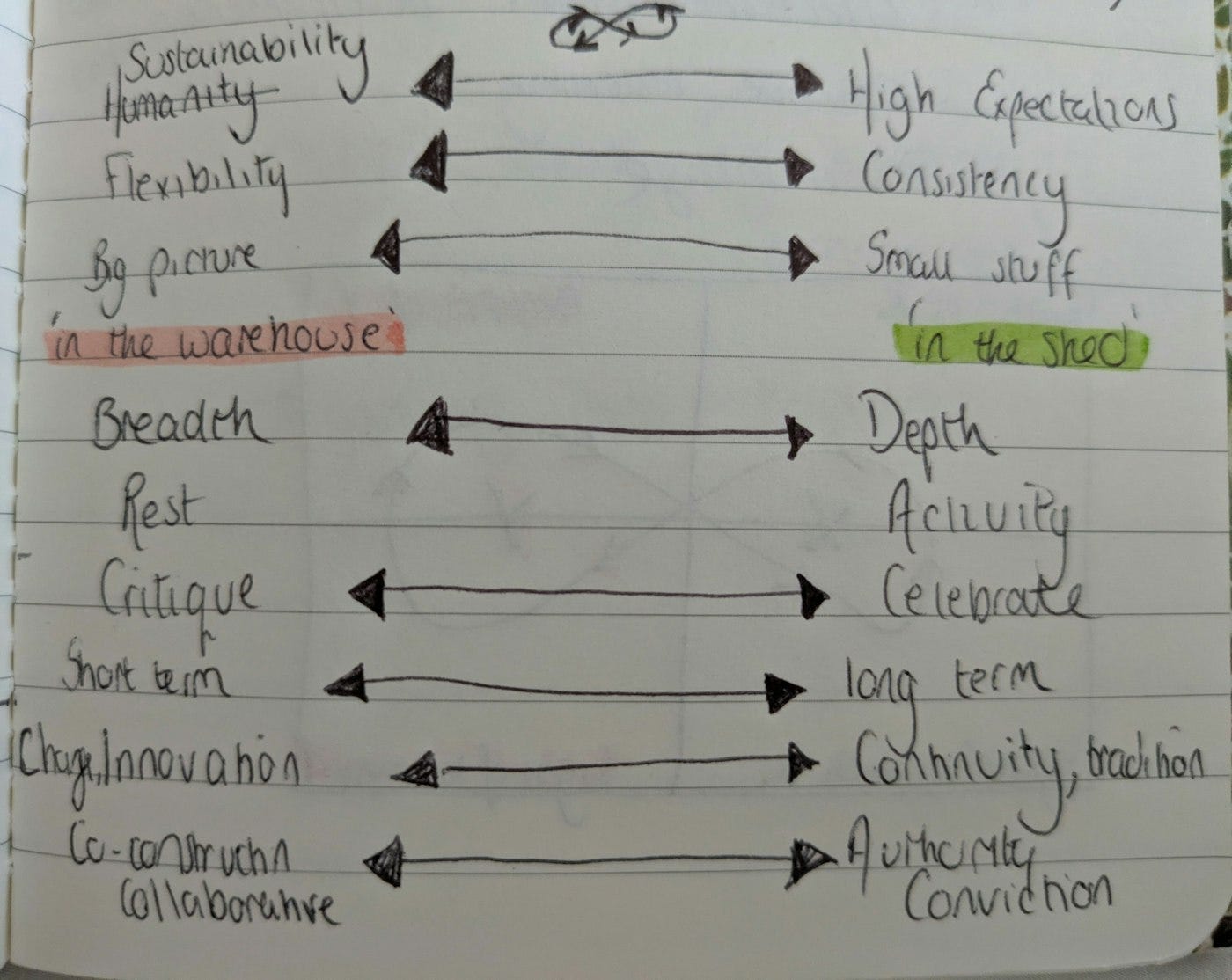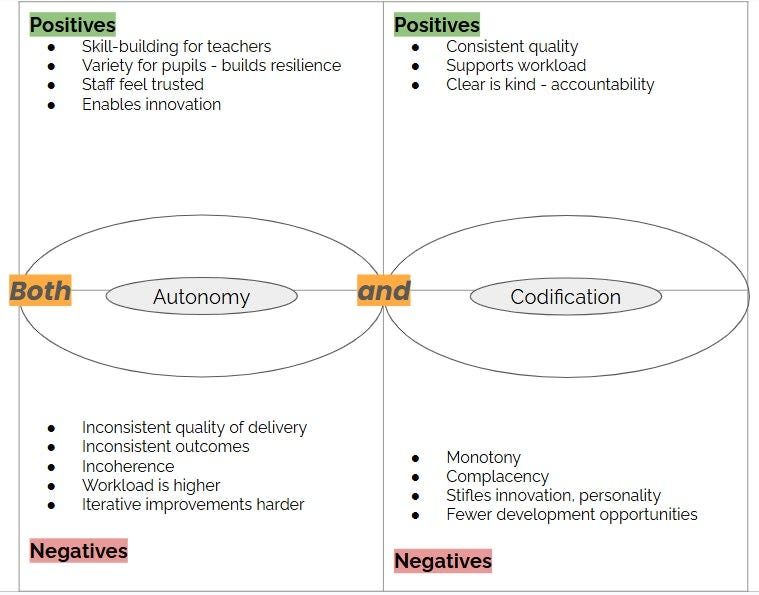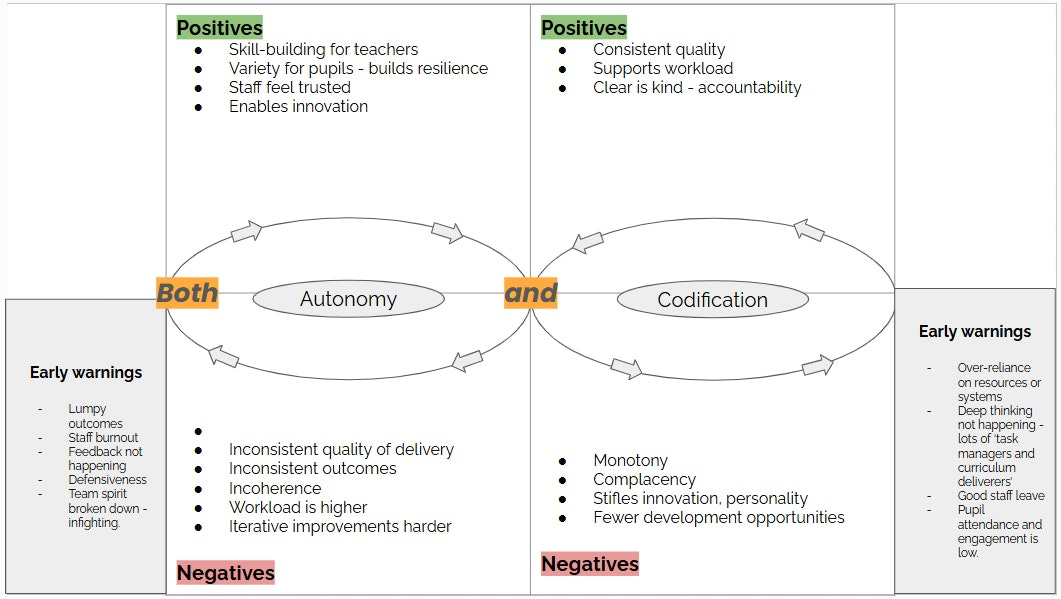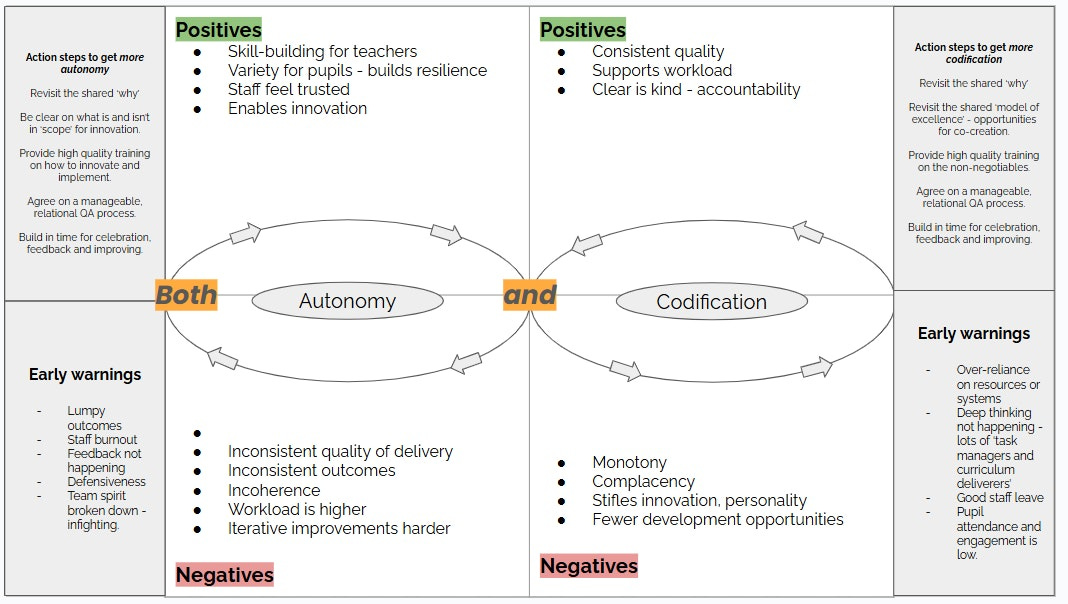#8 Every breath you take is actually a great example of polarity management
The education sector has its fair share of ongoing, chronic issues that are unavoidable and unsolvable; could polarity management help us?

Today’s final piece of the puzzle has been inspired (pun very much intended) by such a range of sources. Sometimes a phrase or a concept catches the right group, at the right time and then as per Schmidt’s noticing hypothesis, you find it everywhere…
It all started in Birmingham.
Sarah Ross, headteacher at Harborne Academy shared with us that she had had some training on this concept and now uses it regularly in school to frame challenges. Here’s a useful 5 minute helpful explainer.
The very next day, we visited Ark Victoria and saw this display;
We built our final reflection session around the idea of finding balance between the tensions headteachers face.
A week later I came across Elizabeth Oldfield’s beautiful piece on needing both deep roots and wide branches, which felt incredibly relevant for school leaders.
This led me to do a deeper dive into the world of polarity management.
Here's a snippet from Barry Jonson in 1998;
I reckon the education sector has its fair share of ongoing, chronic issues that are unavoidable and unsolvable.
Here's a few 'polarities' we've been wrestling with in our recent sessions;
(I loved the 'in the shed/in the warehouse' analogy from Adam in the East...)
Here's a more in depth TED talk explainer on what Polarity Management is from Shoshana Boyd Gelfand, finally shedding some light on how on earth I have linked this whole thing to 1983 banger ‘Every breath you take’ by The Police.
OK, so if we're all agreed, lots of problems, especially in schools, are actually 'polarities' and there is no one right way to tackle them. So far, so unhelpful.
What if a strategic meeting with your SLT avoided the locked heads over ‘either'/or’ solutions.
Let's take autonomy and codification as a worked example that we have talked about a lot;
There are pros and cons to both. So what?
We're not advocating for either or.
Or finding a place in the middle that is satisfactory to no one.
Rather some intentional thought about how you move between the two, in a continuous, infinity type movement, and how to spot the early warning signs when you're getting dipping too far into the negatives of one side or the other.
And then, as a team, how do you agree what your actions when it is time to start moving towards the other end of the spectrum?
Certainly no final answers here. But I think as a cohort, we’re starting to feel ok with that. Seeds have been planted.
And just like that, we’re at the end of the middle eight, but by no means are we at the end of the song. The summer term is well under way and it is such a humbling privilege to travel alongside this magnificent group. Stay tuned for further insights and updates.



